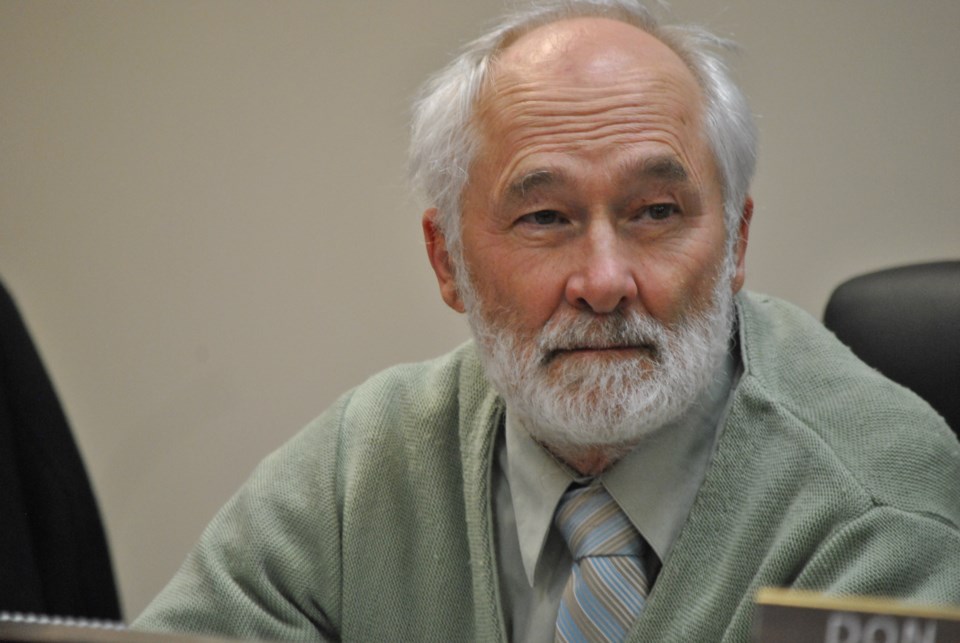BARRHEAD - Town of Barrhead councillors wants more information before they decide whether they should help lobby in support of local newspapers as part of the industry's efforts to be exempt from the Extended Producer Responsibility (EPR) regulations that the province introduced in October 2022.
Coun. Rod Klumph asked that council support the industry's efforts at its Feb. 28 meeting, having the topic added to the agenda at the last minute.
The purpose of the EPR regulations, which will be rolled out over the next two years, is to reduce the amount of material packaging that ends up in the recycle bin while shifting the cost of recycling off municipalities and onto producers — council instructed administration to invite a rep from the local newspaper to speak to them on the topic.
Klumph was concerned that the EPR regulations could adversely impact local newspapers, citing an ad in the Feb. 21 issue of the Town & Country This Week that stated the additional fees could potentially put newspapers at risk, noting the industry estimates that it could cost Alberta newspapers up to $2 million annually, on top of double-digit increases in the cost of newsprint, ink, printing plates and postage.
"I consider our local newspaper an essential service to our community," he said. "People get information about everything ranging from swimming times to events such as annual meetings. They are important."
In the past, Klumph has publically stated that local reporters are the only ones who consistently attend council, court and school board meetings, going as far as to say they are more often than not the only ones in the public gallery.
"Newspapers are already under budgetary constraints already, and these fees would just add to it and could be enough to tip some newspapers to the brink," he said. "We've already seen changes with our own paper that used to be Barrhead-centred, and now it's combined with Athabasca and Westlock. For me, any increase in fees or anything that causes a negative effect with our local newspapers is not beneficial to our communities."
He also noted that newspapers have already taken steps to be more environmentally friendly, using recycled newsprint and biodegradable inks and compared to other products, it was more readily recyclable.
Klumph then asked what the market for recycled newsprint was.
Chief administrative officer Ed LeBlanc noted the municipality takes newsprint at its recycling station sending to a third-party vendor.
"As for its value, we are essentially giving it away, but it does get reused," he said.
Mayor Dave McKenzie, at least in part, agreed with the province's intent, noting that Alberta was the only province that did not have a recycling fee, but added he believed they intended to target packaging and the disposal of large items such as refrigerators.
"Because our landfills do fill up with that stuff," he said.
McKenzie added that it wasn't the newspaper itself that was the issue, but the items used to create it, which is a concern for landfills.
"Things such as printer cartridges and the like," he said.
McKenzie also suggested before council agrees to lobby the government on their behalf, he would like to hear from a representative from the local paper on how the EPR would impact them.
"Just so we know if this is coming from corporate headquarters or is it coming from our local newspaper," he said.
President of the Alberta Weekly Newspaper Association (AWNA) and vice-president of manufacturing for Great West Media Evan Jamison said the EPR "layer additional costs on an important industry that is already under severe pressure."
Great West Media owns several community newspapers in Alberta, including the Town & Country This Week.
Jamison noted that for a paper like the Town and Country This Week, the EPR could add upwards of $9,000 or more annually, while for a larger paper, such as the St. Albert Gazette, it could add $40,000 or more.
"To some, these might look like small numbers, but they are in addition to many other costs that have been escalating," he said. "The largest of the papers, like the metro dailies in Edmonton and Calgary, will incur the highest fees."
He added they are in no better position to pay and that by affecting their viability, they will also impact the handful of printing plants that all newspapers use.
Jamison also does not believe the EPR is necessary for the newspaper industry.
The province lists several goals for the EPR, including reducing the volume at landfills; managing waste through the circular economy; encouraging companies to produce less waste and come up with innovative ways to recycle more materials; diversifying the economy and shifting costs from municipalities and taxpayers to the producers of the waste.
Jamison argues that the newspaper industry has already achieved most of those goals without the EPR.
He noted newspapers have moved to lighter-weight papers, and many newspapers, including Great West Media, use newsprint produced locally in Whitecourt at the Alberta Newsprint Company (ANC).
Barry Kerton, TownandCountryToday.com


.jpg;w=120;h=80;mode=crop)
